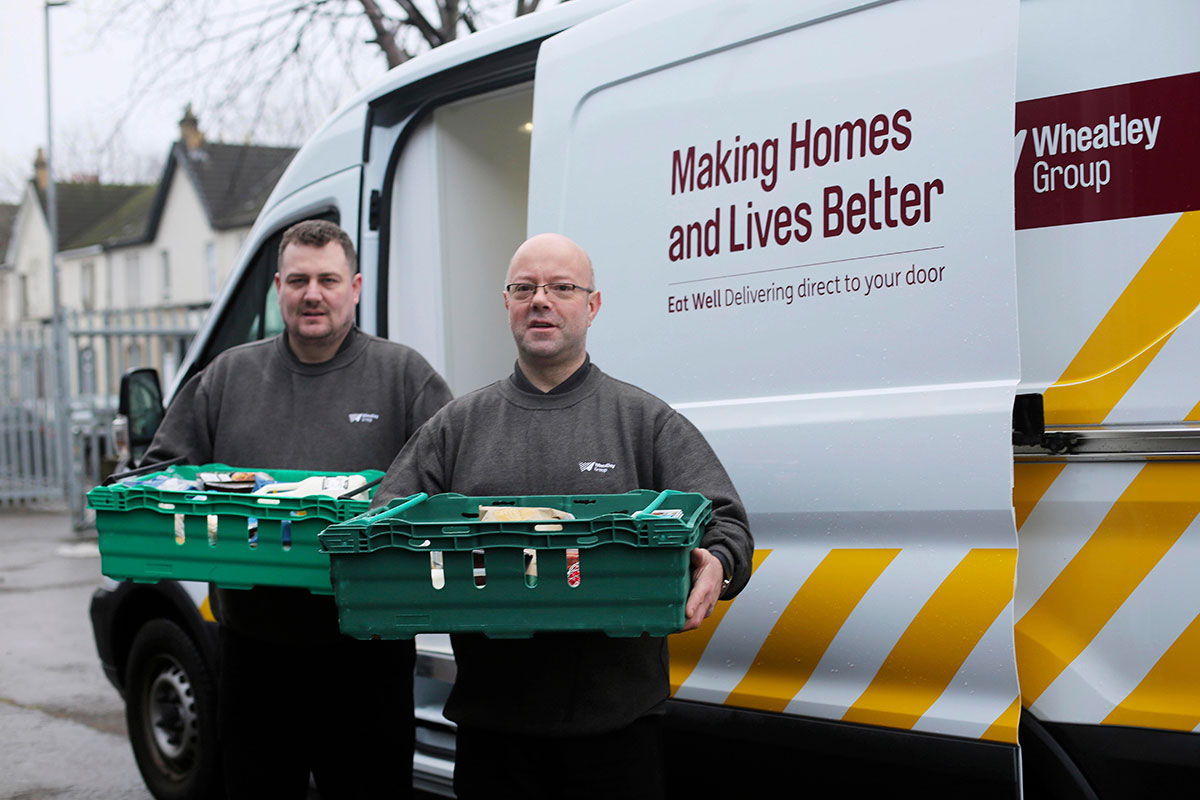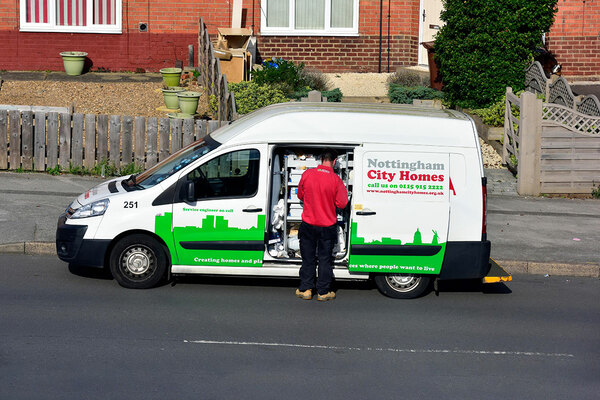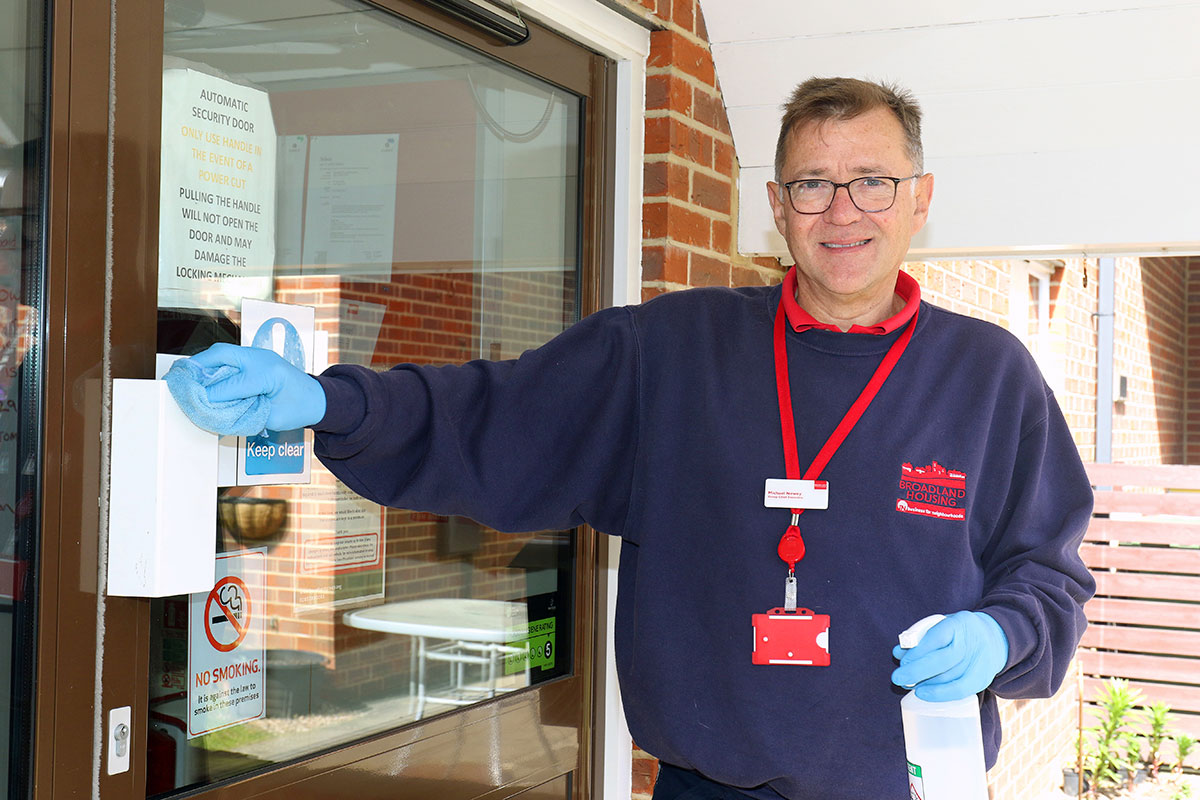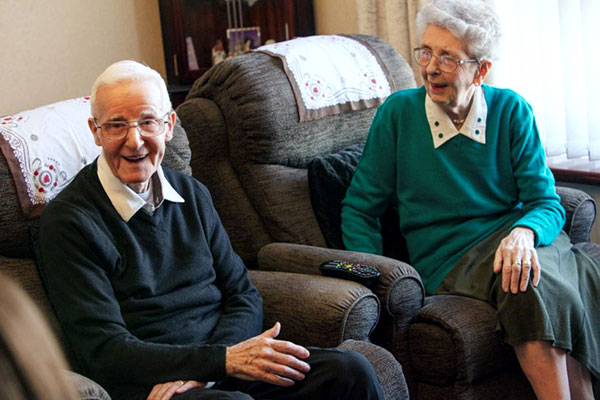You are viewing 1 of your 1 free articles
The sector fights back: how the social housing sector is helping residents during the coronavirus outbreak
The country has been able to pull together during the coronavirus pandemic. Dominic Brady finds out what housing associations have been doing to help
Times of national crisis can reveal a lot about a country. The coronavirus outbreak has been a national crisis that has seen headlines gravitate towards bleak stories of ill health, fear and worry.
But the crisis has also had a unifying effect, with communities coming together and neighbours helping out those in need. There are countless examples of individuals and organisations going above and beyond, many of which can be found throughout the social housing sector.
From food deliveries to giving up blocks for homeless people and picking up the phone to the country’s most isolated, associations and councils have been working hard to provide support.
Here, Inside Housing looks at the different ways in which landlords are adapting to the ‘new normal’ and working differently to respond to the public health crisis that has gripped the country for more than a month.
Food and supplies
Wheatley staff deliver food packs to tenants who are experiencing financial hardship
A number of housing associations have identified access to food as a key area in which they can help. Snaking queues outside supermarkets and weeks of delays on online food deliveries are commonplace now, which means getting enough food is a huge issue for vulnerable tenants and older people.
Wheatley, Scotland’s largest housing, care and property management group, says it has delivered 1,600 emergency food packs to its tenants in the past two weeks.
The group’s Eat Well service, which provides sustenance and advice for those experiencing financial hardship, has expanded its operations by 600% in the past fortnight. Wheatley has plans to go even further: it aims to support the service with £350,000, which it says can grow deliveries to 1,500 a week.
At Northampton Partnership Homes, demand for their foodbank services has increased “massively” since coronavirus hit the UK.
Staff at the foodbank have been working, using donations from a local supermarket to keep it stocked for tenants. From there, tradespeople are enlisted to deliver food packages to tenants who are self-isolating.
A similar approach has been taken by ClwydAlyn in North Wales, says chief executive Clare Budden.
“Because of the outbreak we have had to reduce repair works to emergency only. This has meant that around 40 of our trade staff don’t have anything to do,” she explains.
“Those trade staff are now supporting the care workers with their workloads by running errands and dropping off meals to our older tenants, including a glass of sherry or Baileys on a Friday.”
Yorkshire-based Incommunities has also donated 200 large bags of food to its local Salvation Army foodbank. The charity reports that demand has risen from 30 parcels a week to 100, and expects this to increase further.
Josh Selfe, an officer at The Salvation Army, says: “We are so grateful for the kind support of Incommunities. The donated food will be a life saver for many of our customers at this difficult time.”
Use of facilities
As COVID-19 continues its spread across the UK, fears have been growing that it will have a disproportionate impact on the poorest in society – especially homeless people.
While social distancing measures introduced by government were welcomed, it also posed a conundrum for ministers: how can someone living on the street or in a hostel effectively distance themselves from others?
The gap in government’s thinking was soon filled by the order for hotels to open their doors to those in need. But associations have tried to play their part as well.
Colette McKune, chief executive of ForViva, says the group has made around 100 properties available to house homeless people and key workers who need to isolate.
“Our allocations policy has been ripped up,” she explains. “We have offered up our offices and empty properties to the local authorities for housing homeless people and NHS staff.”
Wheatley has also provided more than 100 empty homes to Glasgow City Council to house homeless people.
ClwydAlyn has opened homeless shelters and freed up empty properties. Ms Budden says: “We are working with councils to free
up empty properties that can be used as temporary accommodation for homeless people to make it easier for them to implement social distancing.”
Network Homes has 1,600 properties next to Northwick Park Hospital in London, one of the capital’s busiest hospitals in terms of coronavirus cases. While many hospital staff already live in these homes, rooms are let out to on a daily basis, allowing others who need a place to rest to be close to the hospital.
Volunteering
Broadland Housing boss Michael Newey joined repairs workers to carry out sanitation duties
Elsewhere there have been numerous examples of individuals going out of their way to make life under lockdown a little more bearable.
Oxford City Council, via its Oxford Direct Services (ODS) social enterprise arm, has redeployed trade staff to deliver food and medicine.
Ian Batchelor, director of construction and building services at ODS, said: “We’ve got carpenters, joiners, plumbers, electricians and a host of people who can’t do their normal job for us, delivering a service. Everyone is a volunteer – they could just stay at home if they want, but people want to do good and make a difference.”
Terry Keen runs an exercise programme for residents
One 73-year-old Anchor Hanover resident, Terry Keen, has also offered his expertise to keep his fellow residents in shape during the outbreak.
Mr Keen, a qualified fitness instructor, created and runs ‘10 Today’ – a 10-minute exercise programme aimed at getting older people moving and stretching while stuck at home. Anchor Hanover, together with Sport England and thinktank Demos, have produced easy-to-follow exercises for the initiative, which has been broadcast daily on BBC Radio 5 Live Sports Extra.
Mr Keen says: “During self-isolation I’m embracing the chance to stay active. As an older person myself, I know that it’s so important to keep moving, with the mobility and strength to take part in things, as opposed to just looking on.”
Financial advice
As housing associations and councils take extraordinary financial measures, they have also been bolstering their day-to-day duties to help give advice to tenants who face extreme financial hardship.
With Universal Credit applications soaring to 950,000 in a fortnight – 10 times the typical volume for a two-week period – councils and associations have been reshaping workforces to help tenants.
Housing association Curo has moved staff from its lettings teams into customer account management in response to increased demand.
“In the past two weeks my team has gone from being a rent collection team to all our calls being about supporting residents,” explains Emma Owens, head of customer account management at Curo.
Similarly, at Wirral-based Magenta Living, staff who had moved to other parts of the business have been recalled to work in the income management team.
Brian Simpson, chief executive of the 13,000-home association, said: “New Universal Credit claims usually average around 60 per month, however in the previous fortnight Magenta Living has received 180 new claims.”
Southwark Council expects another 2,000 tenants to claim Universal Credit in the next six months, adding £500,000 to arrears. To help increased numbers of tenants seeking financial support, the borough has set up a helpline for worried tenants.
Increased communication
Gentoo has called 14,000 of its tenants to check up on them
Before the British public was concerned about coronavirus, loneliness in older people was a chronic problem. The number of people over 50s experiencing loneliness is set to reach two million by 2025/26 – a 49% boom in 10 years, according to charity Age UK.
Now, with stringent restrictions on older people leaving their homes, fighting loneliness has become even more of an issue. Scaling up communication with lonely tenants has become a crucial part of the support housing associations have been offering.
Sunderland-based Gentoo said that more than 14,000 of its tenants across Wearside have received check-up phone calls from the housing association.
Similarly, 58,000-home Sovereign says it has spent the past week calling 10,500 of its residents over the age of 70 to make sure they can self-isolate if required and ensuring they have the care and support they need.
Meanwhile, Notting Hill Genesis (NHG) has put together a telephone befriending service. This involves housing officers getting in touch with older residents and other residents in need of support to ensure that they each have their own named contact to speak to if support is required.
Cameron Finnie, a housing officer at NHG, said: “It was great to make contact with so many people and to give them a chance to discuss their concerns and fears. Many people are extremely worried and frightened by COVID-19 and how it affects their normal routines.
“But it also made me see how resilient people are and how they pull together in what has to be the biggest threat to our communities for decades.”
Financial support
Housing associations are adept at providing services to people facing financial trouble. But the scale of hardship seen since the outbreak is without precedent and is reflected in the huge increases in applications for Universal Credit.
With the welfare net under strain, associations have sought to offset the worst of the financial impact by rolling out their own hardship funds and flexible payment plans.
Stonewater announced it is introducing a flexible payment option for tenants struggling to pay their rent because of the pandemic. The association is also working with charity partner Longleigh Foundation to offer hardship grants to tenants, financed by £400,000 of its 2020/21 grant to the charity.
Sovereign has also donated £150,000 of emergency funds via charity partners to support communities and individuals across the South of England.
Matt Buckham, communities director at Sovereign, says: “As we fight as a nation against coronavirus, we’ve fast-tracked our money support programmes and grants. We’re also revisiting applications from groups and organisations who had previously been shortlisted for funding with us and we’ll be allocating this new pot of money.”
PA Housing has also said it will release additional hardship funds to provide targeted support to residents with acute needs.
More on coronavirus
To see all our coronavirus coverage to date – including the latest news, advice to providers, comment and analysis – use the link below.

















